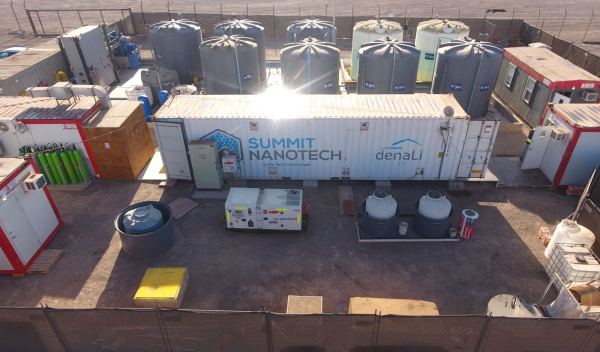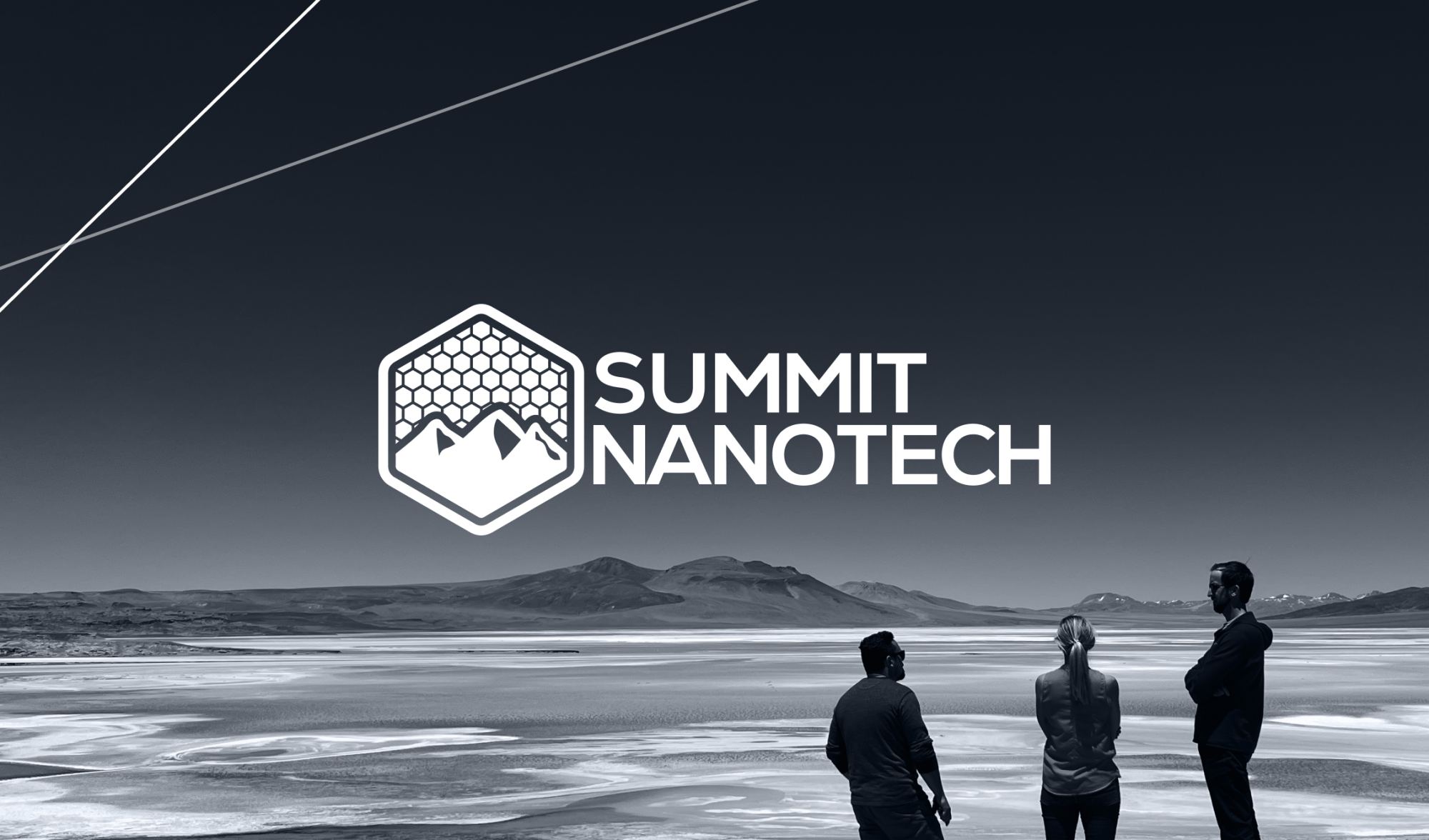The Canadian cleantech startup uses nanotechnology to make lithium extraction more scalable, efficient, and sustainable.
Lithium isn’t something the average person thinks about on a daily basis, but they almost certainly rely on it. The metal literally powers much of our modern technology from cell phones to laptops and electric vehicles (EVs).
Lithium batteries have even been called “the future of energy”— although that future is far from certain. Some industry experts predict a global lithium shortage as early as 2025. The reality is, traditional methods of lithium mining simply can’t keep up with soaring demand.
Fortunately, Calgary startup Summit Nanotech believes it has the answer to lithium’s supply problem. The company is pioneering innovative technology that makes lithium extraction both more efficient and more sustainable— a win-win scenario that’s generated funding to the tune of $65 million CAD to date.
Mountaintop inspiration becomes mining innovation
Summit Nanotech’s founder, Amanda Hall, found her inspiration for the startup in 2018 after summiting a mountain in Tibet. While there, she noticed a Tibetan monk using a cell phone that required a lithium battery. A lightbulb went off, and Hall realized how ubiquitous the demand for lithium would become. Changing the way the metal is mined could be a truly global economic and environmental gamechanger.

Summit Nanotech founder Amanda Hall
With the rise of EVs in particular, the world’s lithium supply is becoming strained. “If even a handful of car companies hit their EV targets, whether it’s in terms of share of their fleet or sales per year, the amount of lithium demand becomes extraordinary,” says Adam Le Dain, Vice-President of Strategy and Corporate Development at Summit Nanotech. “Supply will not meet it— and even if it could, the current methods of supply source have natural flaws.”
The company filed its first patents in 2019, which was a major challenge because of the financial investment required to get cleantech startups off the ground. “With any hard tech, the capital need is quite immense,” says Le Dain. “It’s not like you’re doing software as a service (SaaS), where you need a couple hundred bucks to write some code. You need to test, validate, break, and go again. It’s long development cycles and large capital costs, even at the bench scale.”
As a result, everything was bootstrapped at the start, to the point where Hall basically leveraged her life for the business.
“She quit her job, sold her house, and went all in on this path because she believes in it” says Le Dain. “That’s a general theme of Amanda Hall as a human, which is probably part of how we got where we are today.”
Know when to cut your losses
Many people imagine tech success stories as “Eureka!” moments where a remarkable idea suddenly pops into a founder’s head and almost births itself into the world. This was not the case for Summit Nanotech.
In fact, the startup’s first solution for lithium extraction was an utter failure. “We started with this concept of modelling the technology after the human kidney, with the idea you could pull specific minerals or metals out of a solution in a very energy efficient manner. Initially, we thought let’s use a membrane process to do that,” says Le Dain. “It did notwork. Full stop.”
While it was tempting to double down on the idea and put more time, effort, and money into making it work, Summit Nanotech’s current success can be attributed to doing the opposite.
“There was a pretty critical point in our history where the decision was made quite quickly to say, look, that was a bad idea, but the core thesis regarding selective capture of minerals out of a solution is solid. Let’s keep running with that but cut using a membrane as the method of execution,” says Le Dain. Instead, they flipped to a sorbent material, which worked.
“It’s all about finding that weird balance of commitment and confidence, but also staying humble and being able to pivot quickly.”
He points to the decision to move on quickly as one of the company’s biggest early learnings and one that’s now a core part of their company culture. “The timelines in the climate tech or critical mineral space are quite long, so if you godown the wrong road for a full cycle, you’re done. It’s all about finding that weird balance of commitment and confidence, but also staying humble and being able to pivot quickly.”
Lithium is traditionally extracted from either brine or hard rock, with brine beneath South America’s salt flats becoming a major contributor to the world’s supply. Unfortunately, this method has raised environmental concerns because it requires massive water usage, as well as significant areas of land.
However, Summit Nanotech’s denaLiTMDirect Lithium Extraction (DLE) solution captures lithium ions in brine using, as their name suggests, nanotechnology. Afterwards, they’re able to reinject the lithium-depleted brine back into the salt flats, which helps to preserve nearby sources of freshwater.
From Calgary to Chile

Summit Nanotech is headquartered in Calgary, but its first pilot project was based in Chile. This is because this is ultimately where the bulk of lithium extraction takes place, and it makes sense to test their technology in real-world conditions.
“So our thesis was, let’s deploy the technology in the region and location where it will ultimately be deployed at commercial scale. That’ll be more representative of the actual performance, and it’ll allow us to advance, in parallel, agreements with multiple partners from Chile and Argentina,” says Le Dain.
“It’ll also get us to start learning in the field. Which, again, will be critical because these are harsh environments,” he continues. “At commercial scale, we’re going to be at 4000-plus metres elevation in the desert, usually away from any kind of standard civilization. So, you have to start learning, how do these environmental realities affect the process?”
The pilot itself was built in Calgary in late 2021, when COVID was still having negative impacts across multiple industries. The lab they were originally working with closed, so Summit Nanotech built the pilot in a barn just outside of the city. That was just the beginning of their challenges.
“Supply chains were a monstrous disaster at that time, and we were a small Calgary-based company sending a single shipping container to Chile. We weren’t a priority,” says De Lain. “We were waiting at the port for it to arrive. It was a white container with a huge Summit Nanotech decal across the side. They bring down the container and are like, ‘here you go guys, congratulations!’ But it was a grey container. It was simply not ours.”
There were also learnings on the human side of the pilot. Summit Nanotech was deploying top chemists, engineers, and scientists from Calgary into the Chilean desert. “these are subject matter experts who built the technology and built the pilot, but that’s a pretty different work environment and they’re now physically away from the rest of the company. You have to work to try to manage that from a culture perspective.”
Ultimately, the first Chile pilot was a success and led to a larger, permanent facility in Santiago that had multiple benefits from being able to run multiple brines at a time, business development opportunities, and being a more attractive locale for international talent to transition to.
Summit Nanotech’s next big goal will be raising their Series B round in 2024 while at the same deploying their demonstration-scale facility in South America, and opening another Calgary and Denver facility to expand their prototyping and manufacturing footprint. “There’s a lot to be done and a lot of opportunity, so we’re trying to move as quickly as we can,” says Le Dain. “ Relentlessness will be a constant.”
If you would like to learn more about Summit Nanotech, please visit their website at summitnanotech.com.
RBCx offers support to startups in all stages of growth, backing some of Canada’s most daring tech companies and idea generators. We turn our experience, networks, and capital into your competitive advantage to help you scale and make a meaningful impact on the world. Speak with an RBCx Advisor to learn more about how we can help your business grow.
